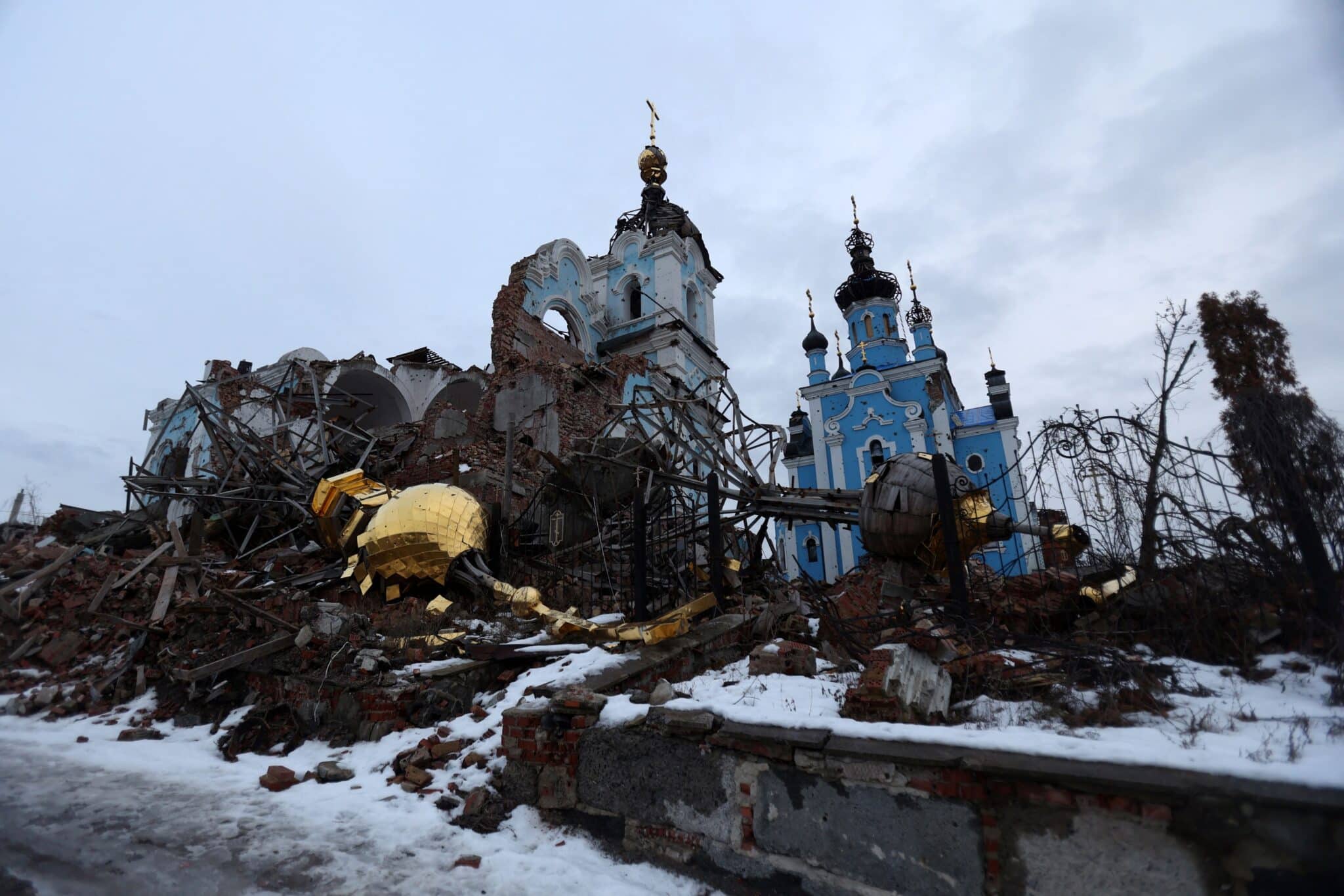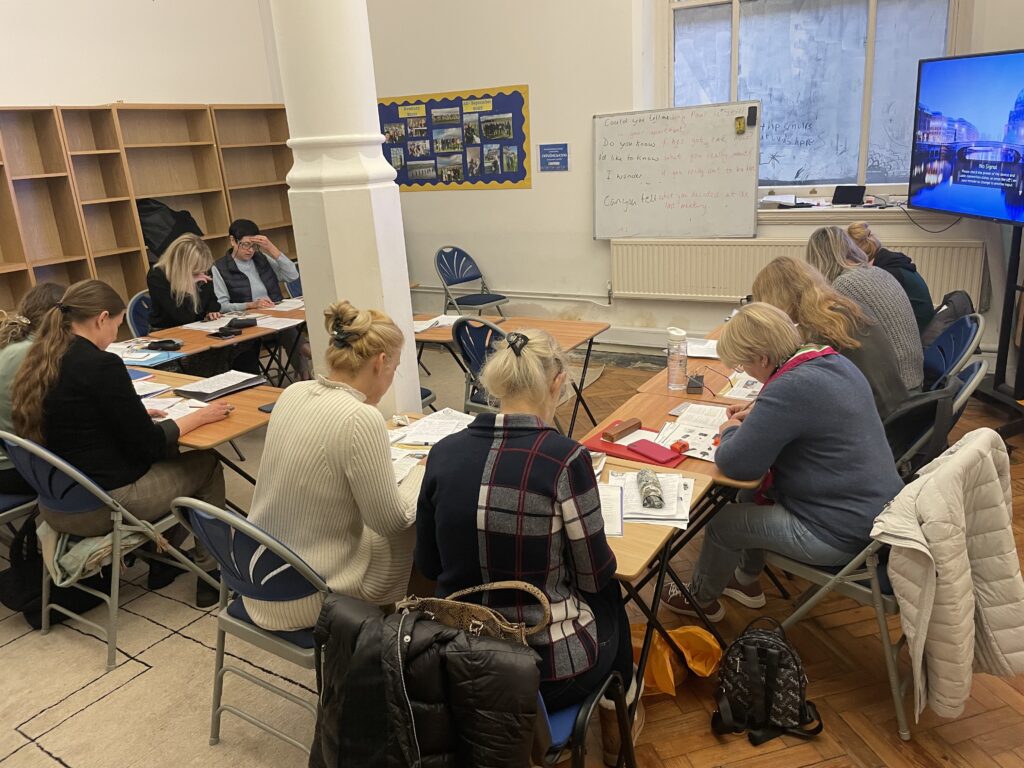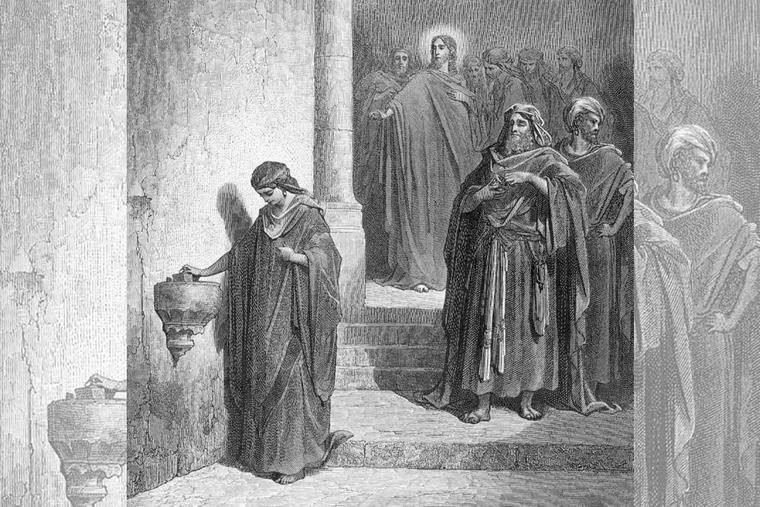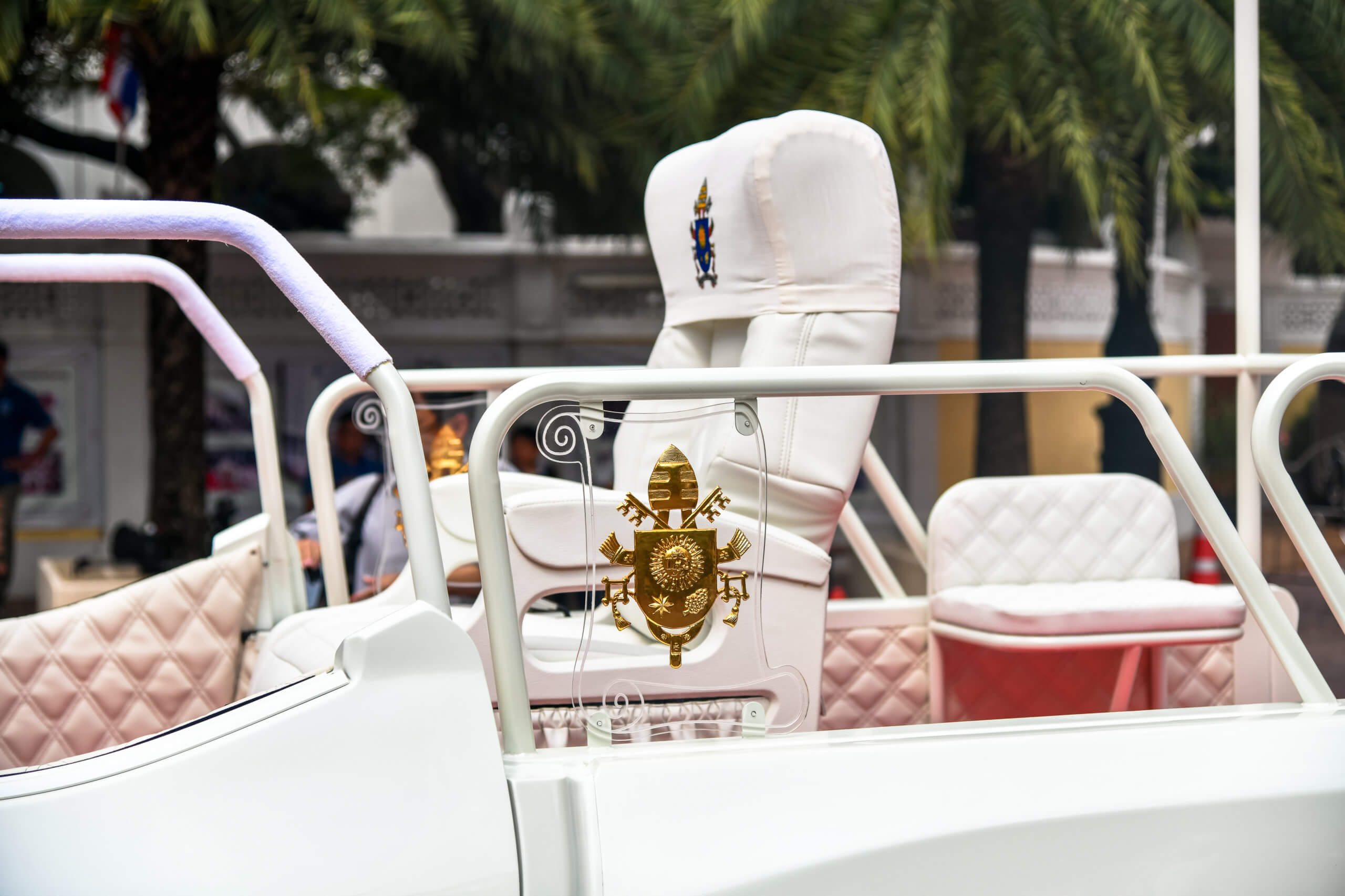Ukrainian Catholic community in UK count the costs and kindnesses at two-year anniversary of Russian invasion
In the basement of the Ukrainian Catholic Cathedral in central London is the Ukrainian Welcome Centre that has been serving refugees since the start of a war that is about to enter its third year. The two-year anniversary is fast approaching in two day’s time on 24 February, giving Ukrainian refugees who have had to The post Ukrainian Catholic community in UK count the costs and kindnesses at two-year anniversary of Russian invasion appeared first on Catholic Herald.

In the basement of the Ukrainian Catholic Cathedral in central London is the Ukrainian Welcome Centre that has been serving refugees since the start of a war that is about to enter its third year. The two-year anniversary is fast approaching in two day’s time on 24 February, giving Ukrainian refugees who have had to make the UK their home away from home plenty to reflect upon.
The pastoral challenges faced by the Ukrainian Catholic Church, both in the UK and back in Ukraine, were highlighted by Bishop Kenneth Nowakowski, the head of Ukrainian Catholics in the UK, during a 22 February press conference titled “Two Years of War: Heartbroken by Unbroken”, held in the cathedral compound.
Along with other panel members speaking at the event on a drizzly and damp Thursday morning in the British capital, the bishop also discussed the wider socio and geopolitical implications of the Ukraine war that shows no signs of ending soon.
“One of the pastoral challenges is establishing how to support those families affected,” Nowakowski said, noting that up to 280,000 refugees – most of them women and children – have arrived in the UK since the war began. “It is also a challenge how to deal with our clergy, both here and in Ukraine.”
He highlighted how in Ukraine priests are often presiding over funerals on a daily basis for those who died defending the country, or were killed by bombs, or who died due to lack of medicines “that are readily available here in the UK”.
At the beginning of Lent, Nowakowski, who is bishop of the Ukrainian Catholic Eparchy (Diocese) of the Holy Family in London, spoke of the plight of Ukraine’s people, of the need for small acts of support and mercy in the face of seemingly powerlessness against the forces of war, and of the need for all Christians to reflect during Lent on the war and all its terrible consequences.
During the press conference, the panel spoke about the essential need for “victory” against Russia. During questions from the floor that followed, the Catholic Herald asked what Catholics and Christians should pray for his Lent, given that praying for peace or praying for victory could involve different outcomes for Ukraine, certainly in terms of restoring all its territory that Russian has seized.
“Peace is not just the cessation of the war and it is not contradictory to pray for peace and to pray for victory,” Nowakowski said. “Peace for Ukraine would be peace for the Russian people too, and victory for Ukraine would be victory for the Russian people also, as it would free them from a dictator.”

The bishop and the two panel members with him, Olesya Khromeychuk, director of the Ukrainian Institute, and Petro Rewko, chair of the Association of Ukrainians in Great Britain, highlighted the human costs of the war, including the thousands of Ukrainian children taken to Russia – Khromeychuk said 20,000 children have been forcible removed – and family life riven in two with children being separated from their fathers on the front lines. No men below 60 years of age are allowed to leave Ukraine as they are expected to remain to support the war effort.
During the war, Ukraine’s divorce rate has hit an all-time high since the country gained its independence. More than 500 children are officially confirmed as having been killed in the war, while some 1,200 others have been injured, with many losing limbs.
“PTSD is engulfing the whole of society,” Khromeychuk says.
Initially 47-year-old Kateryna Kulishova wanted to stay in Ukraine during the war, she told the Catholic Herald, describing herself as a “rebel”. But she was persuaded to come to London by her two adult children who had already moved to the British capital and were concerned about their younger sister remaining in Ukraine.
After Kulishova arrived with her 15-year-old daughter in London, she says she initially became very concerned about her daughter’s welfare.
“She couldn’t speak a word of English, she had no friends, unlike what she had in Ukraine, and couldn’t socialise – she became depressed,” Kulishova says.
Thankfully, she explains, things have improved markedly for her daughter who is now enrolled at a school, works in a Pret A Manger café and is learning English.
“I am proud of her, she is strong,” says Kulishova, who worked in the finance sector back in Ukraine, but in London has got involved in the art scene by organising exhibitions for Ukrainian artists – both in London and back in Ukraine – to bring their work to a wider audience.
“The artworks are positive and light, they deal with nature, landscapes and beauty,” she said. “Just because of the war people don’t change their attitudes to life.”
She said that the British and Ukrainian cultures are different “in good ways”, adding how Ukrainian refugees have been able to learn from British culture.
“People here show more emotion and talk more freely, and women have more freedom, which I like and makes me feel more comfortable,” Kulishova said, describing how Ukrainian culture is more patriarchal.
The main difficulties she has encountered have been dealing with the “bureaucratic machine” here, noting that in Ukraine it is easier to get things done and that there tends to be more “dynamism” in its organisations and institutions compared to a more “conservative” approach in UK bureaucracies.
She also expressed concern about the cost of property here, noting that in Ukraine you can typically pay off a mortgage in 10 years. She expressed dismay that in the UK people can have to devote up to 40 years of their working life to paying off a mortgage before they are free of the burden, have truly secured a home and can focus their earnings on other things in life.
Speaking about her Catholic Faith, she said that she enjoys visiting various parishes around London to observe “the differences”, which she says she likes, describing how one week she would go to Westminster Abbey, then to Saint Paul’s the following week, and then to Saint Gabriel’s in Pimlico.
She said that she admires how involved British parishioners are in their churches, volunteering for choirs and to run church events.
“In Ukraine we are what you could say is more modest and shy at church,” she says.
She divorced her husband back in 2008 but has stayed in touch with him because of their children. She said that he has been fighting since 2014 – when Russian invaded Crimea – which has involved three tours of duty, during one of which he was seriously injured and lost a leg.
“The welcome centre has been a key service for thousands of refugees over the two years,” says Iryna Terlechi, chair of the Association of Ukrainian Women. “It’s where they learn English, support each other, and can stay connected to their heritage during a traumatic time.”

She said that many Ukrainian refugees have spoken about “how kind” British people have been, especially those who have “gone out of their way” and sponsored refugees.
The main complaints she has heard from refugees have related to not understanding the country’s bureaucratic systems, hence the centre provides “a lot of help” with the likes of organising GP appointments, getting children into schools, even paying water bills, Terlechi says.
“Putin counted on the cracks in the international community, but he miscalculated,” Khromeychuk says. “The international community has realised that this is not just an existential fight for Ukraine but is existential for the survival of the democratic order around the world.”
She said that talk in some quarters of the war reaching a “stalemate” or that the chance of victory for Ukraine being “finished” is misplaced, and she emphasised the need for people to be wary of Russian propaganda and to be prudent about what sources of information they turn to about the war and to be “careful what they consume”.
Concerns about Russian influence and misinformation have even seen the Ukrainian Orthodox Church facing a ban by the Ukrainian government.
“Any religious ban risks putting the country on a slippery slope,” the bishop said, also noting that the ban placed on the Catholic Church in Ukraine by the communists in 1946 didn’t stop the Church returning.
Though he went on to say that “any organisation promoting anti-Ukraine aggression and falsehoods in a time of war counts as treason and should be charged, whether it’s a Church or other organisation”.
He said that in such circumstances whereby an organisation is assisting a country that wants to defeat Ukraine then the Ukrainian government “has the right to take the appropriate action”.
The Ukrainian Catholic Cathedral is planning various events on 24 February to mark the two-year anniversary, including a midday ecumenical inter religious prayer service, attended by various guests, including MPs and diplomats, followed by a procession to Trafalgar Square in the early afternoon. The organisers highlight that all are welcome to attend and show solidarity and support for Ukraine.
Photo: The Holy Mother of God church damaged by shelling in the village of Bohorodychne, in Donetsk region, during the Russian invasion of Ukraine, 21 February 2023. (Photo by ANATOLII STEPANOV/AFP via Getty Images.)
![]()
The post Ukrainian Catholic community in UK count the costs and kindnesses at two-year anniversary of Russian invasion appeared first on Catholic Herald.













